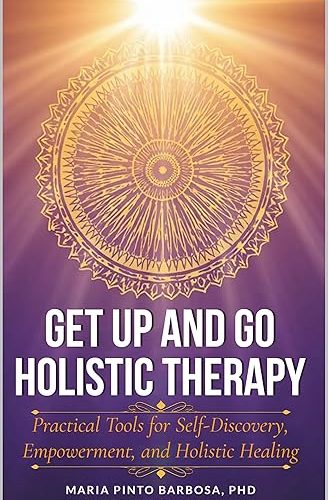The fairness theory states that, “Life should always be fair and exactly equal for everyone.” If we have developed too many expectations based upon this “fairness belief,” then we are doomed to a life filled with misery and fear. Scripture helps find a balance: “In love he predestined us to be adopted as his sons… To the praise of his glorious grace, which he has freely given us in the One he loves, Jesus” (Ephesians 1:5-6). “You will keep in perfect peace him whose mind is steadfast, because he trusts in you” (Isaiah 26:3). In the worst cases, people spend much of their life calculating fairness, balancing what they have received with what they have given, and maintaining some sort of self-created accounting system that is based entirely on ideas of fairness.
This fairness belief system may have little association with outside reality. We may also have trouble forgiving ourselves. We might be angry at ourselves because we are still living with the consequences of bad choices we made earlier in our lives. We may think we are so “bad” or ‘stupid” that we don’t deserve to be happy. How can we forgive ourselves for our wrong doings? We may blame our parents or even “God” for making us the kind of people that fail. It may all seem so “unfair.”
let’s navigator through this topic a letter more: In life, we often hold the belief that everything should be fair and equal for everyone. This fairness theory states that if we develop too many expectations based on this belief, we will find ourselves trapped in a life filled with misery and fear. However, scripture provides a balance, reminding us that we are loved and cherished by a higher power. This article delves into the fairness versus happiness theory, exploring the consequences of our expectations, the challenges of self-forgiveness, and ways to overcome blame and find happiness.
The Fairness Belief System
The fairness belief system is built upon the idea that life should always be fair and exactly equal for everyone. Unfortunately, this perspective can lead to a perpetual cycle of calculating fairness, constantly balancing what we have received with what we have given. In extreme cases, individuals may create their own self-made accounting system solely based on their notions of fairness. However, this belief system often has little association with the reality outside our minds.
The Consequences of Unmet Expectations
When our expectations of fairness are not met, we may experience profound disappointment, leading to feelings of anger, resentment, and disillusionment. We may find ourselves questioning why others seem to have it better or why we are facing difficulties. These unmet expectations can cast a shadow over our lives, preventing us from finding true happiness and contentment.
Scripture’s Guidance for Balance
Scripture offers solace and guidance for finding a balance between fairness and happiness. In Ephesians 1:5-6, it states, “In love he predestined us to be adopted as his sons… To the praise of his glorious grace, which he has freely given us in the One he loves, Jesus.” This reminds us that we are embraced by a divine love that transcends the limitations of fairness. Additionally, Isaiah 26:3 reassures us, saying, “You will keep in perfect peace him whose mind is steadfast, because he trusts in you.” By placing our trust in a higher power, we can find peace amidst life’s perceived unfairness.
The Challenge of Self-Forgiveness
One of the hurdles we may face in our pursuit of happiness is forgiving ourselves. Often, we carry the weight of past mistakes, regretting the choices we made earlier in life. This self-condemnation can lead us to believe that we are undeserving of happiness, branding ourselves as “bad” or “stupid.” We may even find ourselves blaming our parents or questioning the higher power for creating us as flawed beings.
How to Forgive Ourselves
- Recognize our humanity: We are all fallible and make mistakes. Accepting our imperfections allows us to move forward and embrace growth.
- Learn from past choices: Rather than dwelling on regret, use past mistakes as valuable lessons. Each misstep presents an opportunity for personal development.
- Practice self-compassion: Treat yourself with kindness and understanding. Remember that everyone deserves forgiveness, including yourself.
- Seek support: Reach out to loved ones, friends, or professionals who can provide guidance and help us navigate the journey of self-forgiveness.
Overcoming Blame and Finding Peace
Blaming ourselves or others for our misfortunes only perpetuates the cycle of unhappiness. Instead, we can choose to release blame and find peace within ourselves. Here are some steps to guide us:
- Acceptance of circumstances: Acknowledge that life is unpredictable, and certain events may be out of our control. Embrace the idea that not everything happens with fairness in mind.
- Letting go of resentment: Holding onto resentment only harms ourselves. Practice forgiveness, both for ourselves and others, to free ourselves from the burdens of blame.
- Shifting focus: Instead of fixating on what is unfair, redirect our energy towards gratitude and the positive aspects of our lives. Appreciating the blessings we have can bring a sense of contentment and happiness.
- Embrace personal responsibility: Take ownership of our choices and actions. By accepting responsibility, we empower ourselves to create positive change in our lives.
FAQs
Blaming others for our misfortunes only hinders our personal growth. Instead, we should focus on taking responsibility for our lives and finding constructive ways to overcome obstacles.
How do we get over blaming ourselves or others for our misfortunes? Should we blame others for our misfortunes? Temperament tendency toward fear? How can we overcome self-blame? What is unfairness? Temperament tendency toward fear? Can we find happiness without fairness?
https://anchor.fm/maria-barbosa-phd/episodes/How-to-Understand-Yourself-and-Others-e18fq5a
Buy the book THE VALUE OF SELF-KNOWLEDGE
www.drmariabarbosa.com
Maria Pinto Barbosa PhD
PHD-Doctor of Philosophy in Cristian Clinical Counseling
ACCEL-Holistic Life Coach, & Founder-Director of ACCEL Educational Leadership
Discover more from Dr Maria Barbosa
Subscribe to get the latest posts sent to your email.





